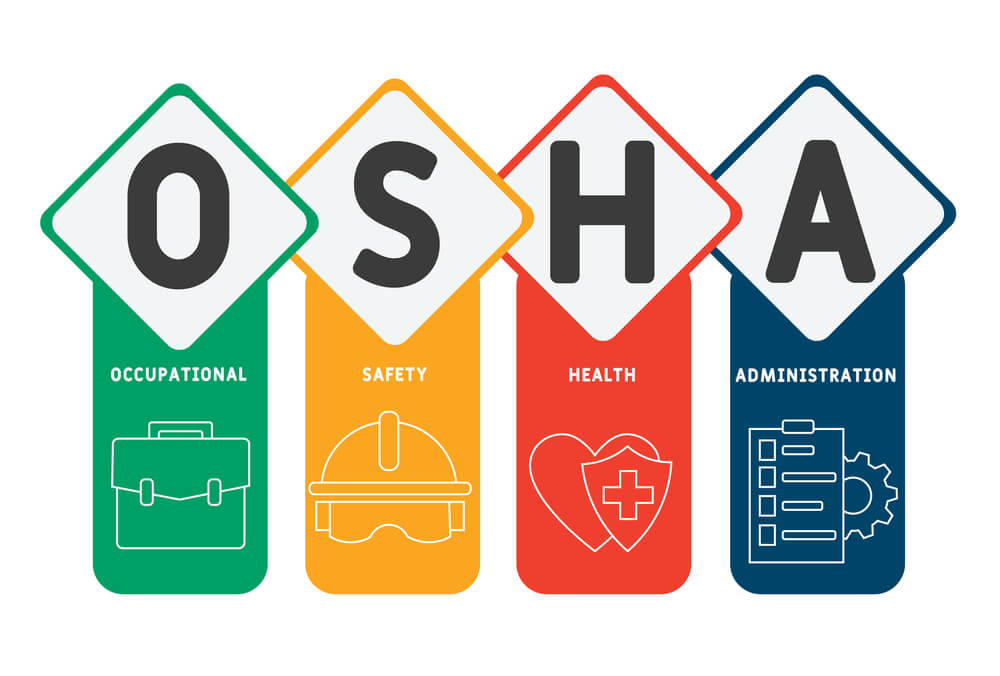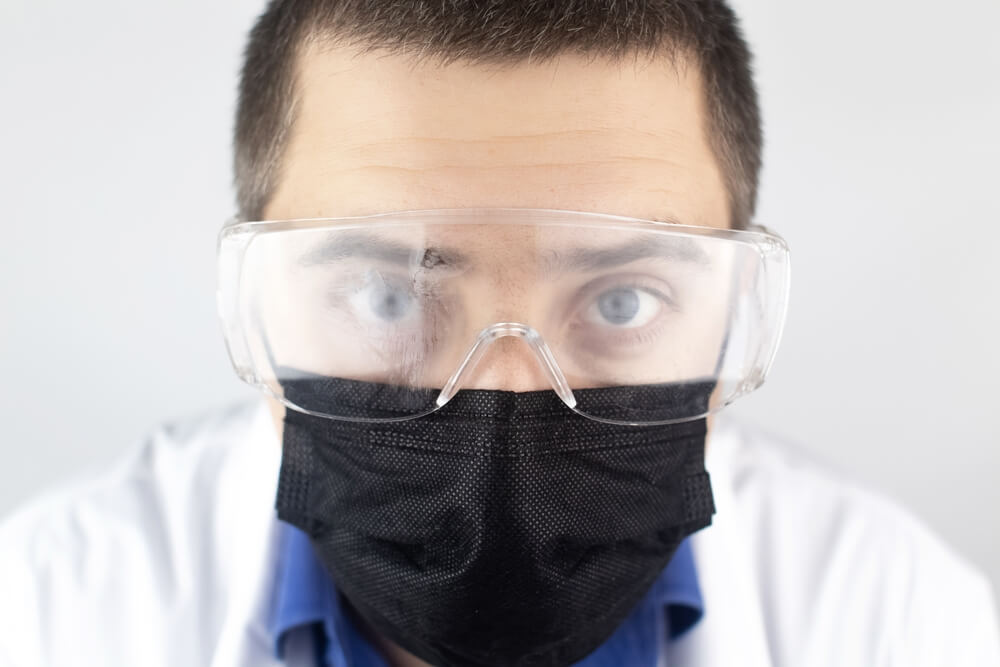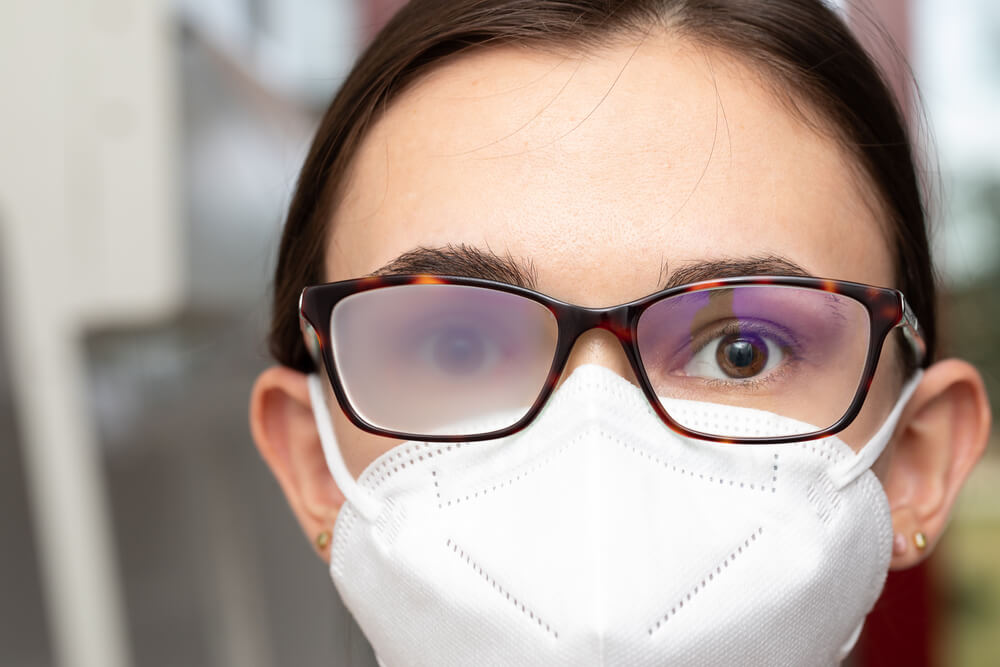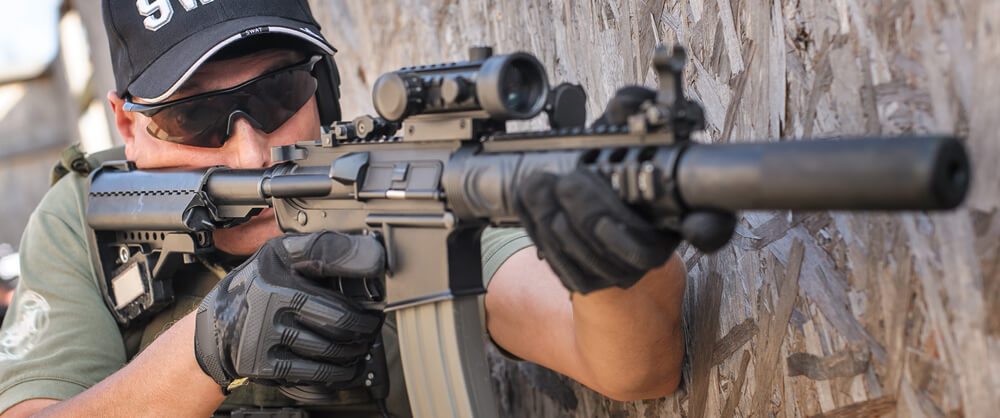
Blog
In Which Industry Safety Glasses are Used
Safety glasses are essential for protecting our eyes, which are our most valuable senses. It is impossible to overestimate the importance of trustworthy eye protection in a variety of fields and daily situations. Let's look into the world of everyday safety glasses in this extensive guide, covering their varieties, features, uses, and the reasons they are an essential component of our protective gear.
Overall Safety Glass’s Essential Role
Every day, we are subjected to a multitude of risks to our eyes, from chemicals and flying debris to UV radiation. The purpose of general safety glasses is to protect your vision from these possible threats, avoiding damage and preserving the best possible condition of your eyes. There are many different styles of safety glasses to meet different needs. The main categories are as follows:
- All-purpose safety eyewear
All-purpose safety glasses are adaptable and appropriate for many different jobs. They are a basic option for everyday eye protection.
- Protective goggles
Safety goggles give improved protection against dust, debris, and chemical splashes by creating an air-tight shield around the eyes. They are perfect for use in airborne particle conditions and laboratory work.
- Safety glasses with a wraparound design
Complete protection is provided with wraparound safety glasses, which offer additional shielding regarding the sides of the eyes. They are a well-liked option for outdoor and construction activities.
Frame Designs For Safety And Comfort
- Frame with full rim
Maximum protection is provided by full-rimmed safety glasses, which completely enclose the lenses. They work well in high-risk situations where there is a chance of debris or particles coming from all directions.
- Frame with semi-rim styles
Safety glasses with a semi-rimless design strike a compromise between style and protection. They have a wider field of vision because of their partially framed top.
- Rimless frame styles
For activities requiring clear eyesight, goggles, and glasses with rimless frame styles are the best option. When splashes and flying debris are a problem, goggles offer total coverage and are the ideal choice.
The Essential Features Of Safety Glasses To Consider
A basic but useful style of protective eyewear is safety glasses. Nearly everyone may use them thanks to the range of styles offered, and the lenses' various protective coatings enable them to offer the necessary defense against a wide range of threats.
Size of lens
To put it simply, the area covered by a lens while worn will vary greatly depending on its size; a bigger lens will protect and cover the wearer more. Unless you require eye protection to adjust your spectacles, there is more to it than just size!
The shape of the lens
The lens shape will determine how effective the protection is; the more closely the lens fits the wearer's face, the more well the eyewear will shield them from danger. The majority of safety glasses have "wrap-around" lenses, which are concave and conform to the wearer's facial contours.
The corners of more sophisticated safety glasses are tilted back even farther toward the wearer's face, reducing the gap between the eyeglasses and the face. The use of glasses that cause the least amount of obstruction or "blind spots" when worn is advised as the shape of the lens can also alter one's field of vision.
Lens optical clarity
The level of optical clarity is an additional factor that may have an impact on the wearer's eyesight. The best quality, Class 1 optical clarity, indicates that wearing the glasses "continuously" won't damage the eyes. The most basic performance, Class 3, is only appropriate for sporadic usage and should not be used for extended periods. Class 2 is good for limited usage.
Protective features of lenses
Lenses with various protective qualities offer the following defense.
- Anti-Scratch: guards against scratches on the surface of lenses, preserving their optical clarity.
- Anti-Mist/Anti-Fog: this feature keeps vision clean by preventing the lens from fogging.
- Anti-Glare: This material lessens sun glare, which is typical of outdoor eyewear.
- Welding filters: These offer variable degrees of protection against welding and associated operations.
- UV filters: these shield the skin from UV radiation.
Mechanical Strength
This is the amount of impact resistance that the eyeglasses are capable of withstanding. The lowest energy impact rating ("F") that safety eyeglasses can offer is sufficient to withstand a 6 mm, 0.86 g ball traveling at 45 m/s. The pair of glasses will be graded based on the lowest level of protection that either the lens or the side arms can accomplish after testing both of them.
Style with the side arms
While eye protection is the main focus of Safety Eyewear, you can also enhance safety in the temple region by selecting a style with wider side arms. Naturally, the significance of this depends on the setting for which they are used, but if you have the choice, it is something to think about.
Over-eyeglasses
Safety goggles Safety specs are a particular type of safety glasses that are meant to be worn on top of prescription glasses. This is so that they cannot be used in place of safety eyewear because the majority of prescription eyewear does not adhere to the necessary safety requirements. "2-in-1" prescription safety glasses are becoming increasingly accessible, however, and in some cases, the extra cost will be justified.
Can You Use Safety Glasses For The Entire Day?
The plus side is that using your safety glasses all day won't cause you any harm, either immediate or long-term. In actuality, wearing these glasses for extended periods is quite safe. It is useful to have a better understanding of the actual construction of safety glasses to answer the question of whether it is safe to wear them all day. To be honest, there aren't many differences between regular glasses and safety glasses.
The primary distinction can be attributed to the fact that protective eyewear is required to meet a greater impact resistance requirement than conventional glasses. In the modern marketplace, there are many distinct standards; nevertheless, the American National Standards Institute (or "ANSI") is responsible for the most widely used standards.
ANSI standards guarantee the durability of your ANSI Z87 safety eyeglasses, even under extreme strain or stress. According to ANSI guidelines, a specific pair of protective eyewear cannot be deemed safety glasses if they fail any of the several tests that are a part of the certification process.
Safety glasses are built of materials that can withstand these criteria with this aspect in mind. Polycarbonate is the most widely used lens material for safety glasses, and you may frequently find lightweight polycarbonate frames for safety glasses.
There is no way that any of these frames or lens materials might harm your eyes in the near or distant future. The components that go into making safety eyewear are not harmful or dangerous by nature. Conversely, some materials fulfill two functions. They give your eyes additional protection while enabling incredibly clear vision.
In short, safety glasses are just like conventional glasses except that they are stronger and more substantial. Safety glasses are primarily designed to protect your eyes from potentially dangerous substances and falling objects that you may come into contact with during the day. You may genuinely concentrate on a job you enjoy rather than worrying about whether you are sustaining long-term or short-term eye damage by using safety goggles.
Which Business Sectors Use Safety Glasses?
Our attention to personal safety and protection is becoming more and more crucial in the workplace of today. Among these, safety glasses are a must-have protective accessory that not only offers sharp vision but also guarantees our eyes' protection. Safety goggles are essential in these areas. Knowing how safety glasses function to shield our eyes from harm can help us work safely in a variety of challenging situations. The businesses and sectors listed below are some typical ones where protective glasses are usually needed.
Safety Glasses for the Building and Construction Sector
Safety glasses are essential personal protection equipment in the building and construction sectors to protect workers' eyes from potential risks on construction sites. They provide the following safeguards:
- Particle Defense
- Protection Against Splashes
- Safety During Cutting and Welding
- Protection against Debris and Dust
- Safety in the Fall
- Projectile Defense
- Protection from UV Radiation
- Anti-static and anti-fog
Ensuring the protection of workers' eyes in the construction sector requires wearing safety glasses that are appropriate for the work environment.
Wearing Safety Eyeglasses in the Manufacturing Sector
In the manufacturing sector, safety glasses—a common form of personal protection equipment in the building and construction sector—are just as important. The primary benefits of wearing clear safety glasses in the manufacturing sector are as follows:
- Particle Defense
- Safety from Chemical Splashes
- Protection Against Radiation
- Protection against Particles and Dust
- Protection Against Mechanical Impact
- Protection against High Temperature and Flame
- Chemical and Anti-Static Protection
- Transparency and Anti-fog
Therefore, it is essential to select and wear safety glasses appropriate for the work setting to safeguard workers' eyes from a variety of potential risks, whether in the manufacturing, construction, or building industries.
Safety glasses for the chemical industry and laboratories
Safety glasses are used in labs and the chemical industry, besides the previously listed circumstances. They are meant to shield employees' eyes from potential risks related to using chemicals and conducting laboratory activities.
- Protection against splashes and corrosive substances
- Protection against chemical gases and vapors
- Protection against Dust and Particles
- Protection Against Radiation
- Protection from High Temperatures and Flames
- Protection from Microbial Experiments
- Protection from Static Electricity
To prevent eye injuries from hazardous liquids, gasses, droplets, and other potential risks, special care must be given to choosing the proper Hudson safety glasses in the chemical industry and laboratories.
Safety Glasses for Bioengineering and Medicine
Safety glasses are undoubtedly widely utilized in the bioengineering and medical fields. Healthcare and research workers can prevent a variety of risks and accidents to their eyes from occurring during lab operations and treatments by using protective eyewear.
- Protection from infectious diseases and splashes
- Chemical Defense
- Protection for Surgical Procedures and Operating Rooms
- Laser Surgery and Protection against Laser Treatment
- Microbial Splatter Protection and Biological Experiment
- Protection Against Drug Formulation and Manipulation
Consequently, selecting appropriate safety glasses is essential in the medical and bioengineering professions, and the standards for safety glasses are frequently higher than in other situations.
Safety Glasses for Kitchen and Food Processing Environments
Although the use of safety eyewear in industrial and hazardous settings was covered in the preceding sections, they are also essential in everyday life, especially in kitchen and food processing situations. Safety glasses shield employees' eyes from a variety of risks and wounds related to handling and preparing food.
- Defense Against Steam and Oil Splashes
- Defense Against Food Debris and Particles
- Protection Against Disinfection and Cleaning
- Protection for Slicing and Cutting
- Protection from High Temperatures and Steam
- Defense Against Spices and Food Additives
In food preparation and kitchen settings, selecting the appropriate safety eyewear can assist provide efficient eye protection for employees, lowering the hazards connected with operations involving food.
Safety Goggles for Metalworking and Welding
It is especially common to see people using Armourx safety glasses when welding and treating metal. For instance, welding can damage eyes due to the bright light and sparks it produces. As a result, safety glasses are essential for maintaining eye safety when welding and treating metal.
- Defense Against Radiation and Strong Lighting
- Defense Against Metal Particles and Sparks
- Guarding from UV Rays
- Chemical Compounds and Gas Safety
- Protection from Flames and High Temperatures
- Safety During Sawing and Cutting
- Protection from Static Electricity
Safety glasses are crucial for shielding the eyes from radiation, sparks, metal fragments, and other possible risks when welding and working with metal, highlighting how crucial appropriate eye protection is in these settings.
Conclusion
Safety glasses are essential for individual safety in a variety of fields. They efficiently guard against a variety of hazards, guaranteeing that workers may safely do their activities in difficult contexts, from construction to chemical work. Selecting safety glasses that are appropriate for the particular work environment helps to prevent eye injuries and preserve visual health.








Leave your comment